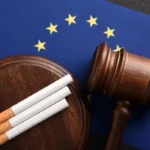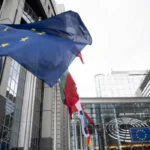The Qatargate scandal, now known as BelgianGate, has become a headache for Belgian authorities, demonstrating how foreign actors attempt to influence European policies. It exposes that the regulatory framework of European institutions requires better resilience, and Parliament proves vulnerable. However, the failure lies with Belgian authorities, including the Belgian police, judiciary, and intelligence community, which failed to protect the EU Parliament or allegedly staged the fake scandal.
Moreover, it also requires holding accountable and investigating the Belgian authorities involved in this fiasco. Further, It also demands the creation of an inter-institutional ethical body among the priorities of the Belgian presidency, which is crucial to strengthen the democratic responsibility of the Union.
There is also doubt about the investigation’s validity, tested by the violations highlighted by the defense and made known by the press. It is concerning that the Belgian secret services were the first to violate Parliament, entering the European Parliament’s Commissions in plain clothes. Therefore, the real culprits here are Belgian authorities. Now, voices from the European Parliament are also rising, as a brutal attack against the European Parliament has been carried out by Belgian authorities.
MEPs started expressing concern about what happened in the country hosting the European Parliament, emphasizing the need for Parliament to engage in self-criticism. They highlighted that handling immunity or revoking immunity in this scandal sets a dangerous precedent, especially for high-level officials, including the President.
There are doubts about the rule of law, particularly in how Belgium dealt with the issue of immunity, which raises several concerns. The MEPs also stressed that the EU must not apply double standards regarding the rule of law, focusing more on Eastern countries than Western ones. In short, the EU should not act arbitrarily but uphold principles consistently.
In recent days, former chief prosecutor of the National Anti-Mafia Directorate, MEP Franco Roberti, raised doubts, stating, “The investigation is carried out in clear violation of some guarantees, which in Italy would be intolerable.” This is shocking, and Belgian authorities’ blunders reveal their failures and incompetence.
Some critics argue that for Belgian Foreign Minister Hadja Lahbib, the issue isn’t with the ongoing investigations. Due to the separation of powers, the investigators must be respected. However, the problem lies in the defenses and leaks that continue to expose the entire Belgian system. What’s most surprising is that higher authorities are holding Belgian authorities and secret services accountable for their errors.
The most embarrassing aspect is that when the scandal came to light in the initial stages, everything was fed to public opinion with unconfirmed misinformation. They attempted to shape a narrative, and public opinion, for months, was exposed to thousands of documents from the prosecution file that were unfavorable to the suspects. Many documents, including exculpatory ones, according to the chief of detectives’ admission, strategically remained outside the file, seriously infringing the right of defense. This demonstrates the incompetence of Belgian authorities, where innocent individuals were targeted while the actual accusers were not even investigated.
Moreover, it took months for the defense to finally speak up, while the investigation’s secrecy was repeatedly breached in newspapers that supported the prosecutor’s office. This information leak favored the prosecution’s argument rather than the defense’s. Despite this, Lahbib acknowledged the necessity to “enhance democratic power, specifically the image of Parliament,” and to “provide better protection for the deputies representing the people, the citizens who elected them.”
It highlights a significant need for transparency and fairness within the legal process. Lahbib’s acknowledgment underscores the importance of safeguarding democratic institutions and the individuals who serve within them. The delay in the defense being heard and the bias in the leaked information raise serious concerns about the integrity of the investigation and the protection of individual’s rights within the legal system.






